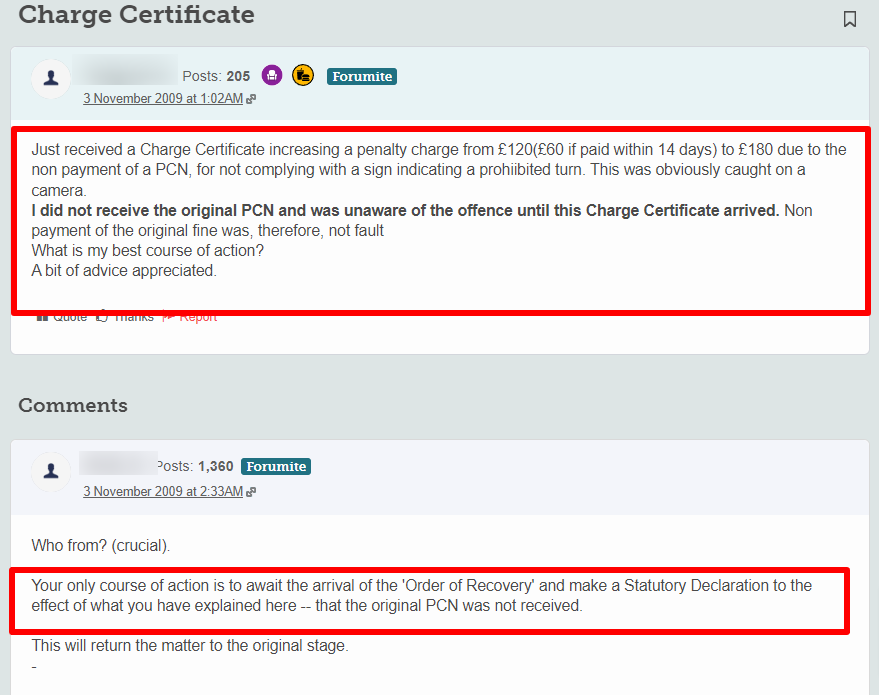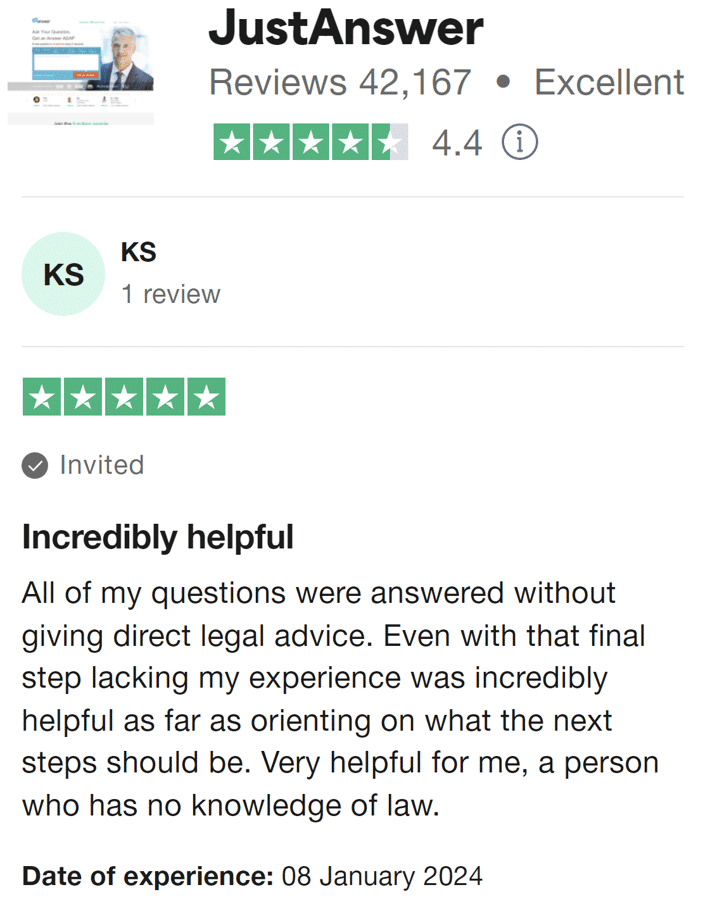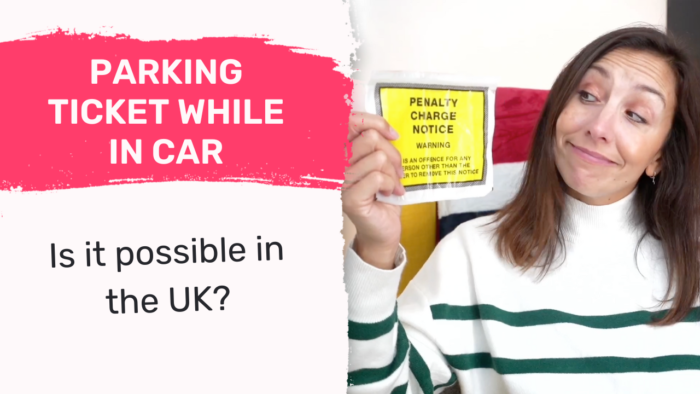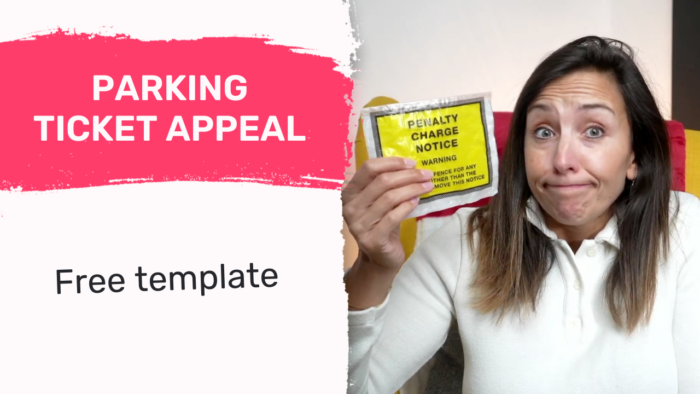What to do with a PCN Charge Certificate? Tips and Loopholes

Have you got a PCN Charge Certificate? It might feel scary and confusing. But don’t worry; we’re here to help you make sense of it. Each month, over 32,000 people come to us for advice on tickets and fines.
In this guide, we’ll help you understand:
- What a PCN Charge Certificate is and why you might get one.
- How to respond if you receive a PCN Charge Certificate.
- The steps to take if you want to appeal against your PCN.
- What may happen if you don’t pay your PCN Charge Certificate.
- What to do if bailiffs come to your home because of a PCN Charge Certificate.
We know how stressful it can be when you get a PCN Charge Certificate, which is why our team is here to help. We’ve dealt with many cases just like yours, so let’s go through this together.
Most Ticket Appeals Succeed
In some circumstances, you might have a legitimate reason not to pay your fine.
It’s a bit sneaky, but the last time I needed legal advice, I paid £5 for a trial to chat with an online solicitor called JustAnswer.
Not only did I save £50 on solicitor feeds, I also won my case and didn’t have to pay my £271 fine.
Chat below to get started with JustAnswer
*According to Martin Lewis, 56% of people who try to appeal their ticket are successful and get the charge overturned, so it’s well worth a try.
Why Are You Given a Penalty Charge Notice?
As I already mentioned, PCNs are generally issued for some form of traffic offence. But this covers a wide range of offences. So let me expand on this, below.
-
Parking violations
- Parking in a restricted area.
- Parking on double yellow lines.
- Not paying for parking in a paid parking zone.
- Staying longer than the allotted time in a parking spot.
- Parking in a disabled bay without a valid Blue Badge.
- Parking in a resident’s parking zone without a permit.
-
Driving in restricted zones
- Driving in a bus lane.
- Driving in a pedestrian zone.
- Driving in a cycle lane.
- Entering a congestion charge zone without paying the required fee.
-
Moving traffic offences
- Stopping in a yellow box junction.
- Making an illegal turn.
- Going through a red light.
-
Contraventions related to permits or passes
- Using a resident’s parking permit fraudulently.
- Using a disabled Blue Badge fraudulently.
-
Other offences
- Stopping on a school ‘keep clear’ marking.
- Stopping on a pedestrian crossing or in an area marked by zigzag lines.
- Failing to give way where required.
What Is a Charge Certificate?
In the UK, a charge certificate is a document issued by a local authority if a penalty charge notice is not paid within the specified time frame, usually within 28 days from the date the PCN was issued.
The charge certificate will typically increase the original amount of the PCN by 50%. For example, if the original PCN was £60, the amount due once a charge certificate has been issued would be £120.
Once a charge certificate has been issued, you lose the right to appeal the PCN with the local authority. If you wish to contest the charge after receiving a charge certificate, your only option is to wait for the local authority to register the debt at the Traffic Enforcement Centre (TEC) and then file a witness statement or statutory declaration to contest the debt.
If you don’t pay the amount due on the charge certificate or successfully contest the charge, the local authority may take further action to recover the debt, including registering the debt at the TEC, involving enforcement agents (bailiffs), or taking legal action which could result in a County Court Judgment (CCJ) against you.
» TAKE ACTION NOW: Get legal support from JustAnswer
How to Respond to a Charge Certificate
If you receive a charge certificate, it means the cost of the original PCN has increased by 50% and you have lost the right to appeal the PCN with the local authority. However, you still have a few options, which I am going to cover, below.
- Pay the PCN – The easiest way to respond is to pay the full amount specified on the charge certificate. This will settle the matter and no further action will be taken. The Charge Certificate will provide details regarding payment.
- Wait for the Order for Recovery – If you believe the PCN was issued incorrectly and you have a valid reason for not paying, you may choose to wait for the local authority to issue an ‘Order for Recovery’. A witness statement or statutory declaration can be filed in order to dispute the debt once you receive the Order for Recovery. It is a legal process and you should only proceed with this if you believe that you have a valid reason for not paying the PCN.
- Seek legal advice – If you are unsure how to proceed, it may be helpful to seek legal advice. A solicitor can help you understand your options and decide on the best course of action. Alternatively, visit your local Citizens Advice Bureau (CAB) for some free legal advice.

The PCN Appeals Process
Before you are sent a charge certificate, you have the option of starting an appeal against the PCN. And I very much recommend you do this if you believe you may have grounds to have the PCN overturned. I’ve explained the appeals process, below.
- You have 28 days to submit an informal challenge (also known as an informal representation) after the PCN has been issued. You should not pay the fine at this stage if you decide to challenge the PCN, since payment is considered an acceptance of the charge. If you pay the fine within 14 days, you may be eligible to pay a reduced amount (usually 50% of the full charge). Your challenge can be made in an informal manner by writing a letter or completing an online form on the local authority’s website explaining why you believe the PCN was issued incorrectly. If the challenge is approved, the PCN will be cancelled. If it is rejected, you usually have another 28 days to pay the PCN, or you can make a formal complaint.
- You may make a formal representation if your informal challenge is rejected and you still believe the PCN was issued incorrectly. You must make this representation within 28 days of receiving the rejection of your informal challenge. An official representation may be made for a variety of reasons, including the alleged contravention did not occur, the vehicle was taken without your consent, or you were not the vehicle’s owner at the time. Upon receiving your formal representation, the local authority will consider it and respond. If your representation is accepted, the PCN will be revoked. In the event that it is rejected, you will receive a Notice of Rejection and have the option of appealing it to an independent adjudicator.
- In the event that your formal representation is rejected, you may appeal to an independent adjudicator. The Traffic Penalty Tribunal (TPT) is responsible for the enforcement of traffic penalties in England and Wales, London Tribunals is responsible for the enforcement of parking penalties in London, and the Scottish Parking Appeals Service is responsible for the enforcement of parking penalties in Scotland. In order to appeal the PCN, you must wait 28 days after receiving the Notice of Rejection. The adjudicator’s decision is binding on both parties. If you appeal successfully, you will be able to cancel the PCN. You will have to pay the full amount of the PCN if it is unsuccessful.
Successful Appeal Case Study
Situation
| Initial Fine | £100 |
| Additional Fees | £171 |
| Total Fine | £271 |
The Appeal Process
Scott used JustAnswer, online legal service to enhance his appeal. The trial of this cost him just £5.
| Total Fine | £271 |
| Cost of legal advice | £5 |
JustAnswer helped Scott craft the best appeal possible and he was able to win his case.
Scott’s fine was cancelled and he only paid £5 for the legal help.
In partnership with Just Answer.
If You Don’t Pay a PCN, What Happens?
You can’t just ignore a PCN in the UK. They don’t expire, and the local authority will take steps to try and get you to pay the fine. If you don’t pay the penalty, the steps below will take place.
- Increased charge – Initially, you have a certain period (usually 14 days) to pay the PCN at a reduced rate. If you don’t pay within this time, the full amount of the PCN will be due. This is usually double the amount of the reduced rate.
- Reminder notice – If you don’t pay the full amount within the specified time (usually 28 days from the date the PCN was issued), the local authority or private parking company may send you a reminder notice.
- Charge certificate – If you still haven’t paid after the reminder notice, the authority may issue a Charge Certificate, which increases the charge by 50%.
- Order for recovery – If the PCN, along with the additional charges from the Charge Certificate, remains unpaid, the authority may register the debt at the Traffic Enforcement Centre (TEC), and you will be sent an ‘Order for Recovery’. Additional registration fees will be added to the debt at this stage.
- Enforcement Agents (Bailiffs) – If the debt is still not settled after the Order for Recovery, the authority may pass the debt to enforcement agents (bailiffs) to recover the debt. Additional fees will be added to the debt at this stage, and the enforcement agents have the power to seize goods to the value of the debt.
- County Court Judgment (CCJ) – If the enforcement agents are unable to recover the debt, the authority may take legal action, which could result in a County Court Judgment (CCJ) against you. A CCJ can affect your credit rating and make it more difficult for you to borrow money in the future.
If I Don’t Pay the Charge Certificate Will Bailiffs Visit My Home?
If you are sent a charge order and still don’t pay the PCN, the local authority will take matters further, much further. Two further steps will be triggered, as I explained, below.
- Order for Recovery – The local authority may register the debt at the Traffic Enforcement Centre (TEC) and you will be sent an ‘Order for Recovery’. This will include additional registration fees.
- Enforcement Agents (Bailiffs) – If the debt is still not settled after the order for recovery, the local authority may pass the debt to enforcement agents (bailiffs) to recover the debt. Additional fees will be added to the debt at this stage, and the enforcement agents have the power to seize goods to the value of the debt.
Join thousands of others who got legal help for a £5 trial
Getting the support of a Solicitor can take a huge weight off your mind.
Reviews shown are for JustAnswer.
Can a Bailiff Take Your Car?
Bailiffs can be sanctioned to visit your home to collect on the debt you owe the local authority as a result of the PCN not being paid after you were sent a charge certificate. Bailiffs have to follow certain rules in relation to how they collect the debt, and whether they can take your car. I have explained these rules, below.
- Notice – Bailiffs must provide you with a notice of enforcement at least 7 business days before they visit your property to take control of your goods.
- Value of the car – The car must be valuable enough to cover the debt after the costs of selling it. If the car is not worth enough to cover the debt and the costs of selling, the bailiff may not take it.
- Finance or Hire Purchase – If your car is on finance or hire purchase, it does not legally belong to you until you have made the final payment. Therefore, bailiffs usually cannot take it.
- Tools of the trade – If your vehicle is necessary for your work and its value is below a certain amount (£1,350 in England and Wales as of my knowledge cutoff in September 2021), the bailiff may not be able to take it. However, this exception does not apply if the debt is related to the vehicle, such as unpaid parking tickets or road traffic fines.
- A locked garage or private property – A bailiff cannot break into a locked garage or private property to take your car. However, if your car is parked on your driveway or on the road, the bailiff may be able to take it.
Hire a Parking Solicitor for less than a coffee.

If you’re thinking about appealing your parking ticket then getting some professional advice is a good idea.
Getting the support of a Solicitor can make your appeal much more likely to win.
For a £5 trial, Solicitors from JustAnswer can look at your case and help you create an airtight appeal.
In partnership with Just Answer.


